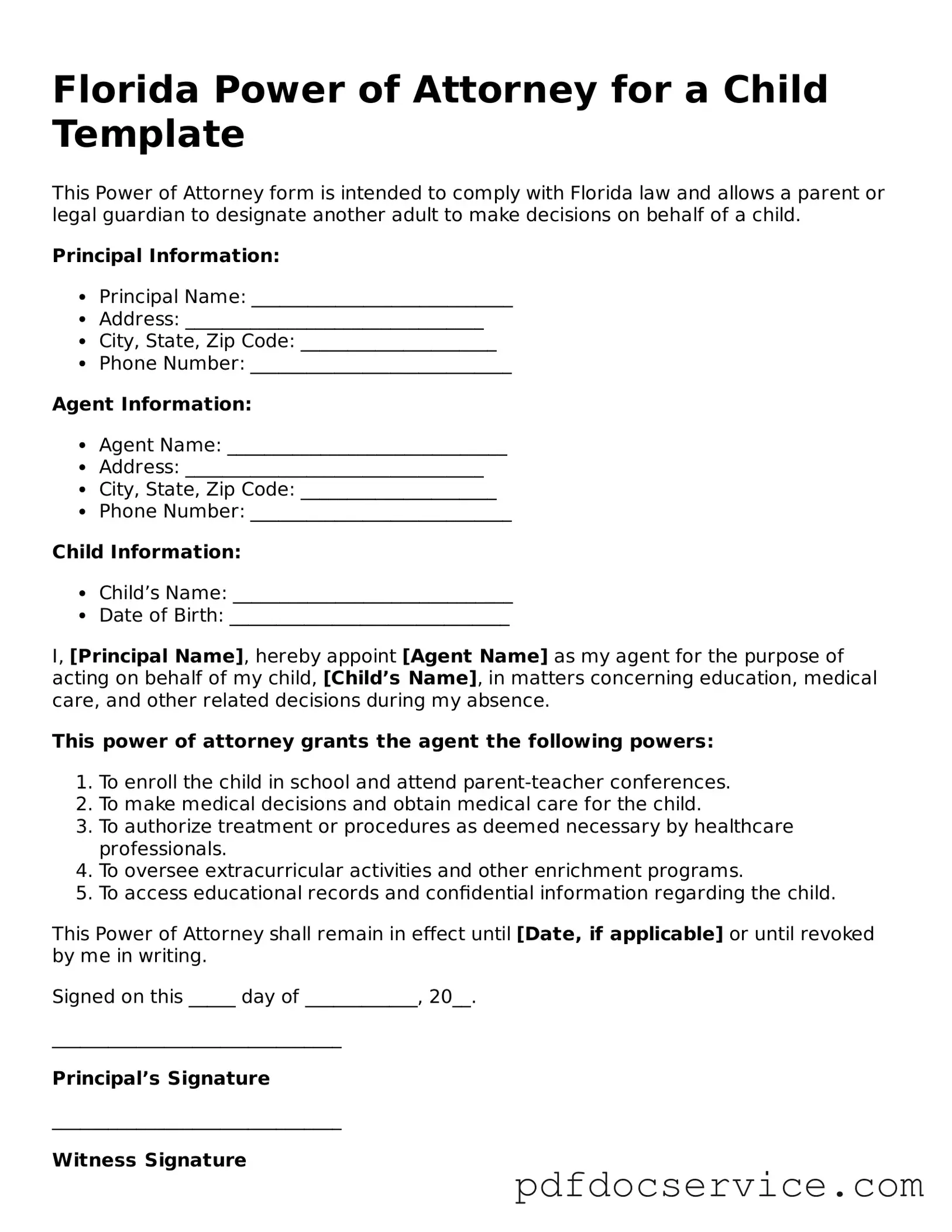Printable Power of Attorney for a Child Template for Florida
The Florida Power of Attorney for a Child form is a legal document that allows a parent or legal guardian to grant temporary authority to another adult to make decisions on behalf of their child. This form is particularly useful in situations where the parent is unavailable, such as during travel or medical emergencies. By using this document, parents can ensure that their child's needs are met while they are away.
Open Power of Attorney for a Child Editor

Printable Power of Attorney for a Child Template for Florida
Open Power of Attorney for a Child Editor

Open Power of Attorney for a Child Editor
or
Get Power of Attorney for a Child PDF
Finish the form now and be done
Finish Power of Attorney for a Child online using simple edit, save, and download steps.